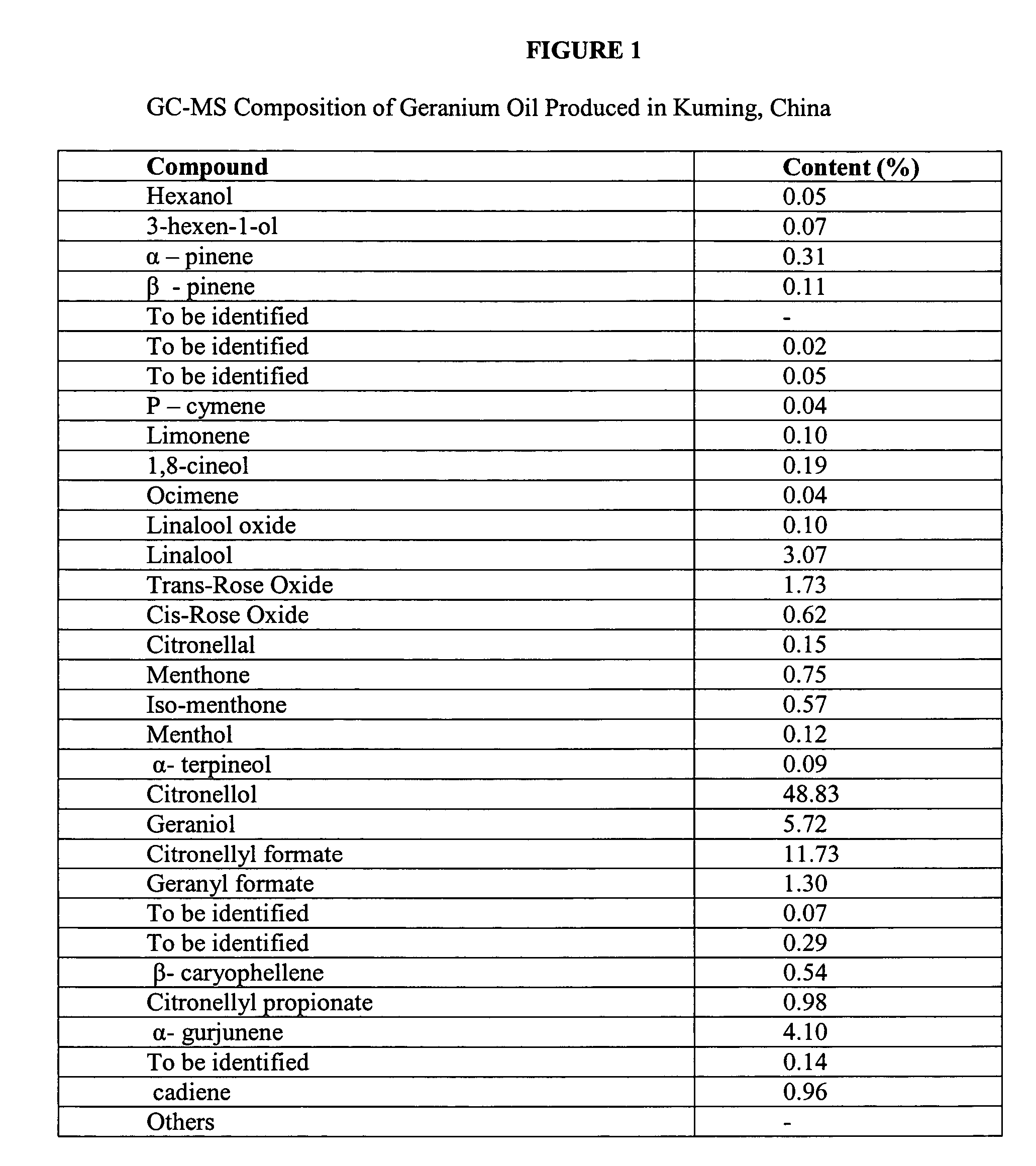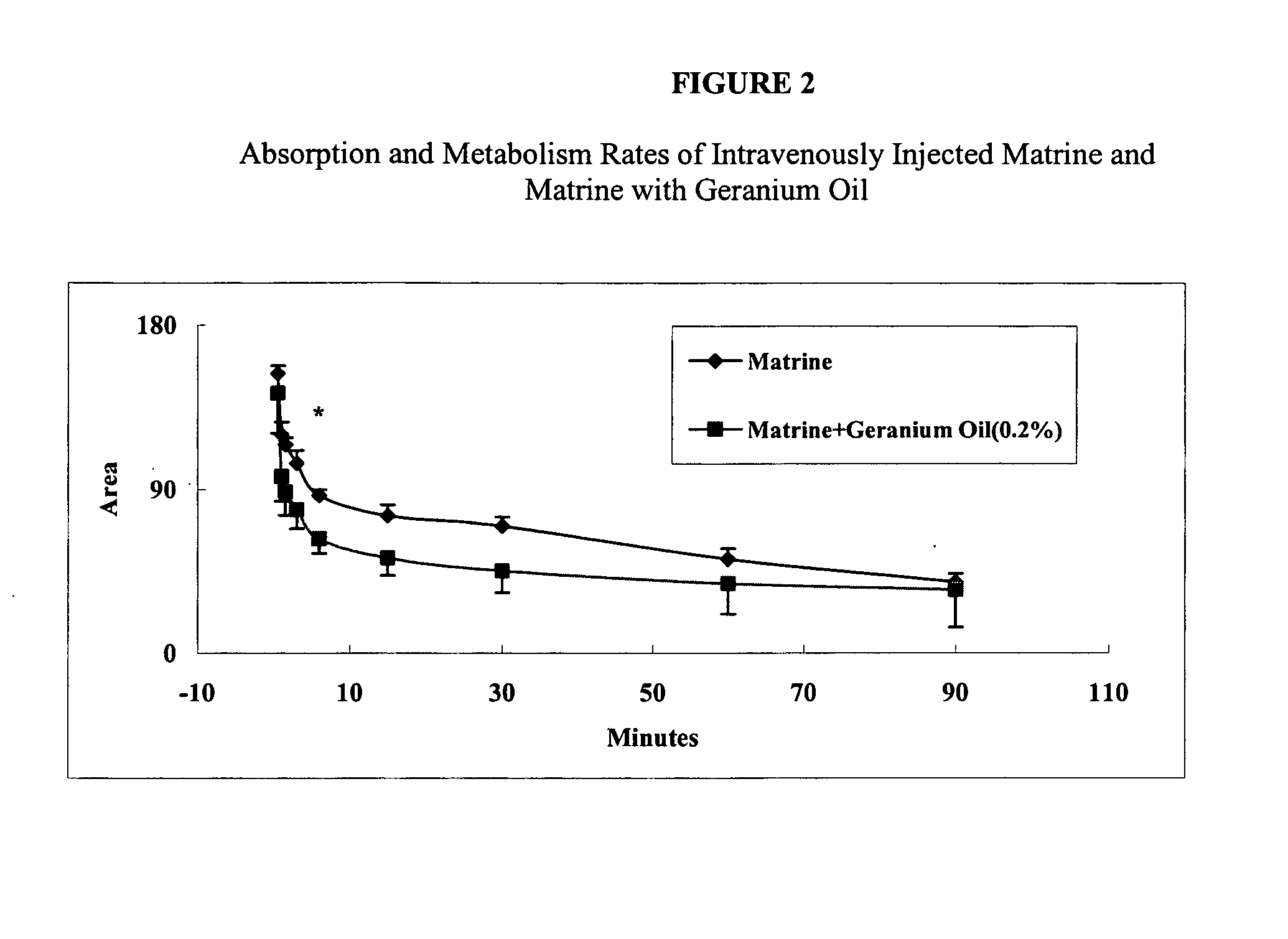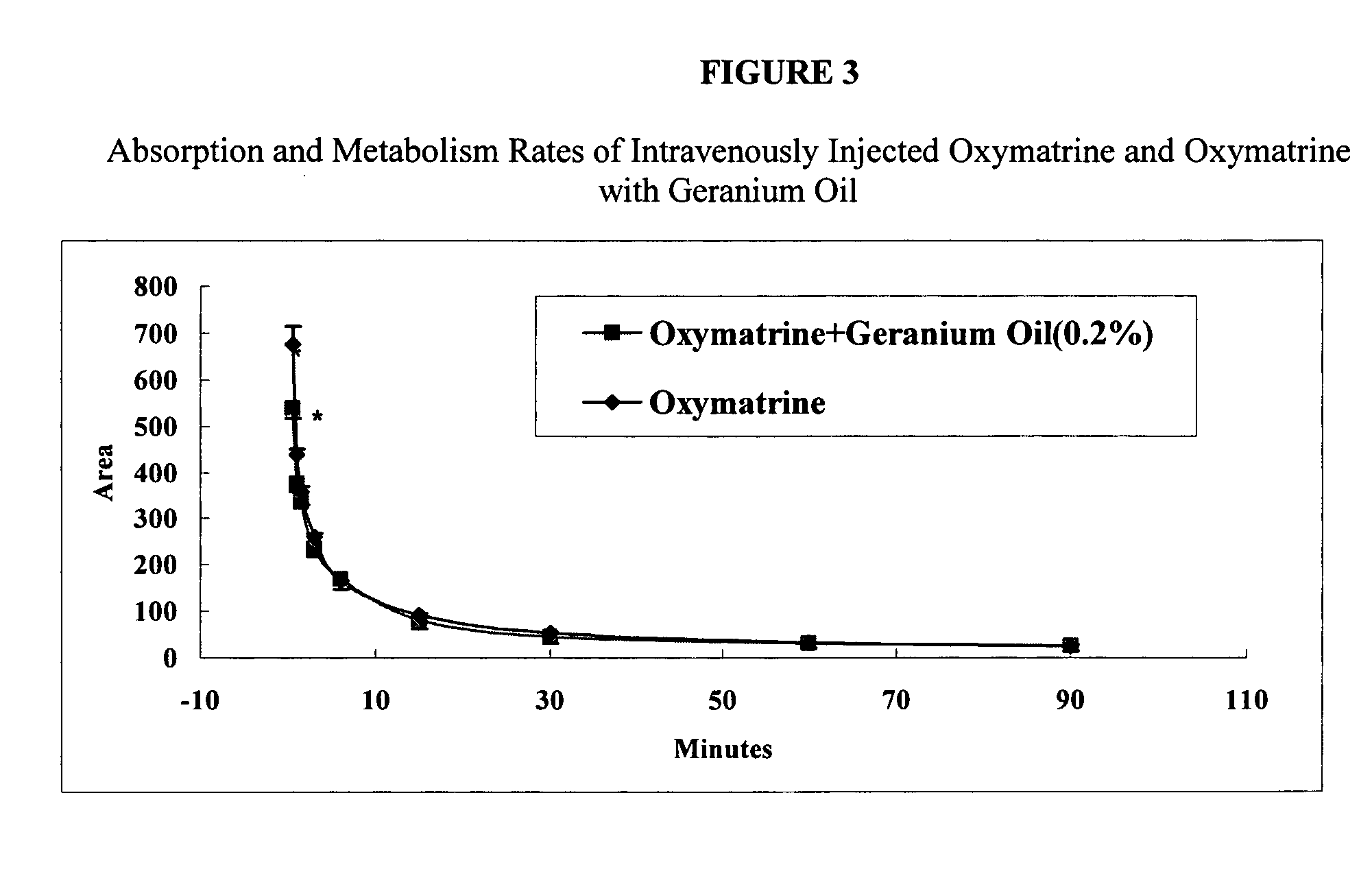Methods of use of herbal compositions
- Summary
- Abstract
- Description
- Claims
- Application Information
AI Technical Summary
Benefits of technology
Problems solved by technology
Method used
Image
Examples
example 1
MIC-3 In Vivo Experiment
Five groups of 5 male ICR derived mice weighing 22±2 grams are fasted overnight for 18 hours. Then, all of the mice undergo intragastrical inoculation of H. pylori in suspension at 3.0×109 CFU / 0.4ml / mouse. A capsule containing test substance MIC-3, geranium oil and extracts of S. flavescenes, is dissolved in corn oil and adjusted into the final concentration of 30 mg / ml, 15 mg / ml and 5 mg / ml. MIC-3 (50, 150, and 300 mg / kg), vehicle control (corn oil 10 ml / kg) or positive control (omeprazole 1 mg / kg+clarithromycin 10 mg / kg) are administered orally to test animals one hour after the Helicobacter pylori inoculation, followed by dosing twice daily for 7 consecutive days. On the eighth day after infection, all animals with overnight fasting are sacrificed and the stomachs are dissected alone the creater curvature. Gastric ulceration is examined and scored at four levels with increasing degree of hemorrhage and severity of ulcerative lesions: 0=normal appearance...
example 2
MIC-1 In Vitro Experiment
Minimum inhibitory concentration is determined by the agar dilution method. 2 mg of test substance, composition of geranium oil and extracts from S. flavescenes prepared for injections (MIC-1), is dissolved and serially diluted in solvent (distilled water) to desired concentrations. For each concentration tested, a 10 μl aliquot is added to a 48-well plate containing 0.99 ml of Columbia agar base supplemented with 7% degibrinated rabbit blood. The inoculum of H. pylori (ATCC 43504) is prepared by suspending in brain heart infustion broth to a density of 5×108 CFU / ml. A multiprong-incubating device is used to place approximately 5×105 CFU / ml per spot onto the containing agent media. Thus, final maximal concentration of distilled water is 1% and the initial test substance concentration is 100 μg / ml. The plates are incubated at 37° C. for 72 hours in the microaerophilic condition (mixed gas N2 85%, CO2 10%, and O2 5%) and then visually examined and scored po...
example 3
MIC-9 In Vitro Experiment
Minimum inhibitory concentration is determined by the agar dilution method. 2 mg of test substance, powder composition of geranium oil and extracts from S. flavescenes with a weight ratio of 30:1 of geranium oil to S. flavescenes (MIC-9), is dissolved and serially diluted in solvent (100% DMSO) to desired stock concentrations. For each concentration tested, a 10 μl aliquot is added to a 48-well plate containing 0.99 ml of Columbia agar base supplemented 7% defibrinated rabbit blood. The inoculum of H. pylori (ATCC 43504) is prepared by suspending in brain heart infustion broth to a density of 5×108 CFU / ml. A multiprong-incubating device is used to place approximately 5×105 CFU / ml per spot onto the containing agent media. Thus, final maximal concentration of DMSO is 1% and the initial test substance concentration is 100 μg / ml. The plates are incubated at 37° C. for 72 hours in the microaerophilic condition (mixed gas N2 85%, CO2 10%, and O2 5%) and then vi...
PUM
| Property | Measurement | Unit |
|---|---|---|
| Fraction | aaaaa | aaaaa |
| Fraction | aaaaa | aaaaa |
| Fraction | aaaaa | aaaaa |
Abstract
Description
Claims
Application Information
 Login to View More
Login to View More - R&D
- Intellectual Property
- Life Sciences
- Materials
- Tech Scout
- Unparalleled Data Quality
- Higher Quality Content
- 60% Fewer Hallucinations
Browse by: Latest US Patents, China's latest patents, Technical Efficacy Thesaurus, Application Domain, Technology Topic, Popular Technical Reports.
© 2025 PatSnap. All rights reserved.Legal|Privacy policy|Modern Slavery Act Transparency Statement|Sitemap|About US| Contact US: help@patsnap.com



